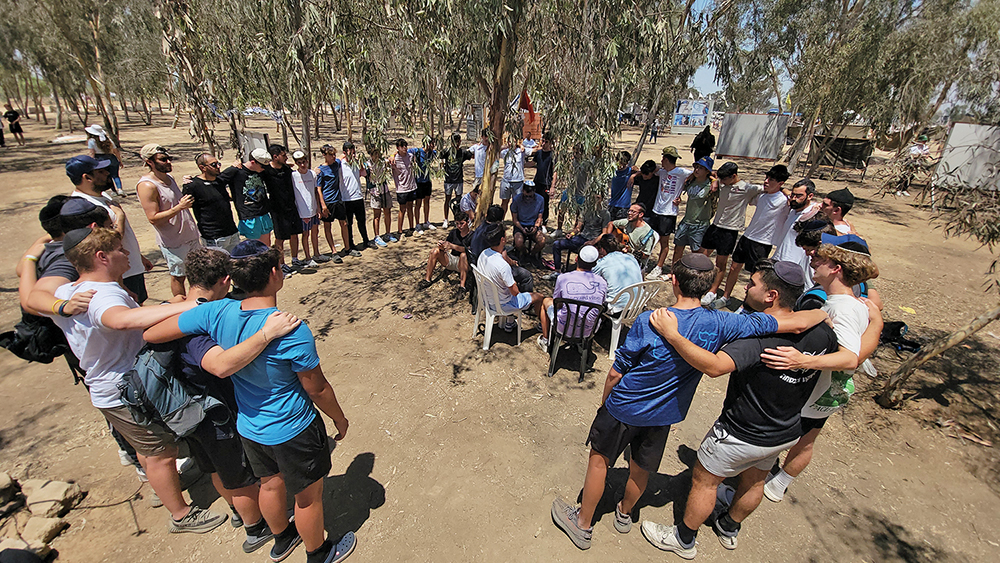
Since my father, Rabbi Eli Teitelbaum, z”l started Camp Sdei Chemed in 1969, there have been very few instances in which we had to cancel camp. My father would say that if he had a minyan of boys who wanted to join and parents who were willing to send them, he would bring them to Israel. This past summer, despite a year filled with uncertainties, we took a bus full of boys. A huge thanks to our parent body, who were encouraging, patient and trusted us to make our decision to go to Eretz Yisrael. It was through our constant contact, both before and during the summer, that we were able to safely navigate our tour and make sure parents were comfortable with our decisions.
No doubt this summer will go down in Sdei Chemed history as very special and unique. When I tell people that we toured most of the country for two months and didn’t hear a single siren, they seem surprised. If you have been in Israel during a war or conflict you know that what’s reported in the news and what it actually feels like on the ground are often very different. Despite the ongoing war, we managed to put together an incredible itinerary and, in typical Sdei Chemed style, one with no downtime.
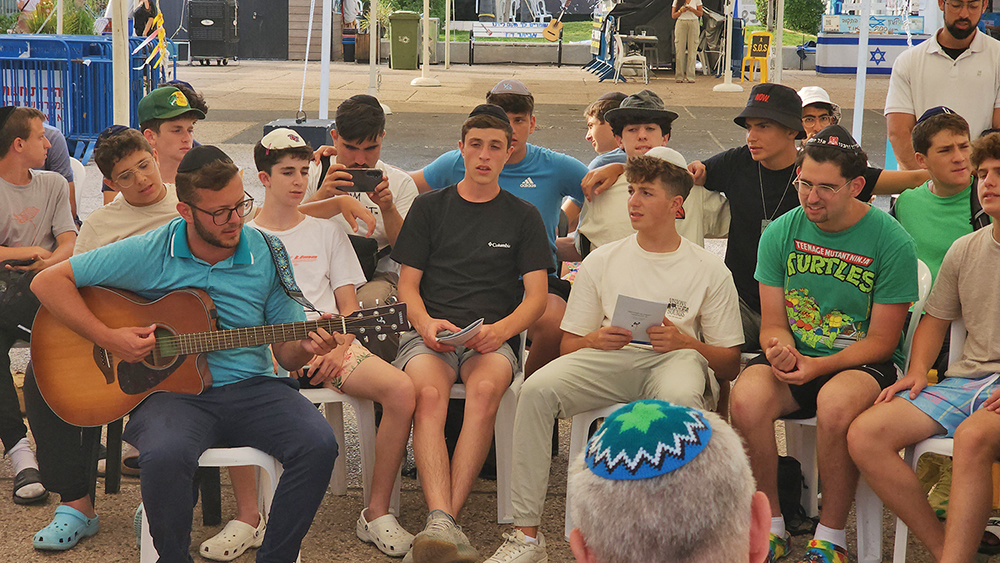
We toured from Eilat in the south to Tzfat in the north and wherever we went we were welcomed with tremendous warmth. People with tears in their eyes thanked our boys for coming. Even if we had only visited the holy places, swam on the beautiful Mediterranean beaches and hiked the wonderful trails, it would have been worth it. Yet this summer we came not only for ourselves, but to make a difference, and part of that meant connecting and sharing in the difficult times Israel is facing.
One example was our visit to Hostage Square. In Tel Aviv, next to the art museum, there’s a large area dedicated to the hostages still held in Gaza. You can visit to learn more about the hostages, sometimes from their close family and friends, and we found a beautiful spot for a kumzitz.
Two of our most meaningful Shabbos experiences each summer are in the Old City of Yerushalayim, where we daven at the Kotel, and in Tzfat. Many campers actually rank the Shabbos in Tzfat as their favorite. That’s why it was such a difficult decision whether or not to visit this summer. Many groups stayed away, but after much deliberation and authorization from Israeli security, we decided to go. The question was would our campers be able to connect there as they did in the past? The artist colony would be closed and the usually bustling shuls would have fewer visitors. How would that affect the experience?
We decided to publicize our visit to the Tzfat community and let them know that if anyone wanted to open their shops for us, we would be happy to visit. The city had been yearning for visitors for nearly a year. They accepted our offer and word spread quickly. We were flooded with immense gratitude from the community.
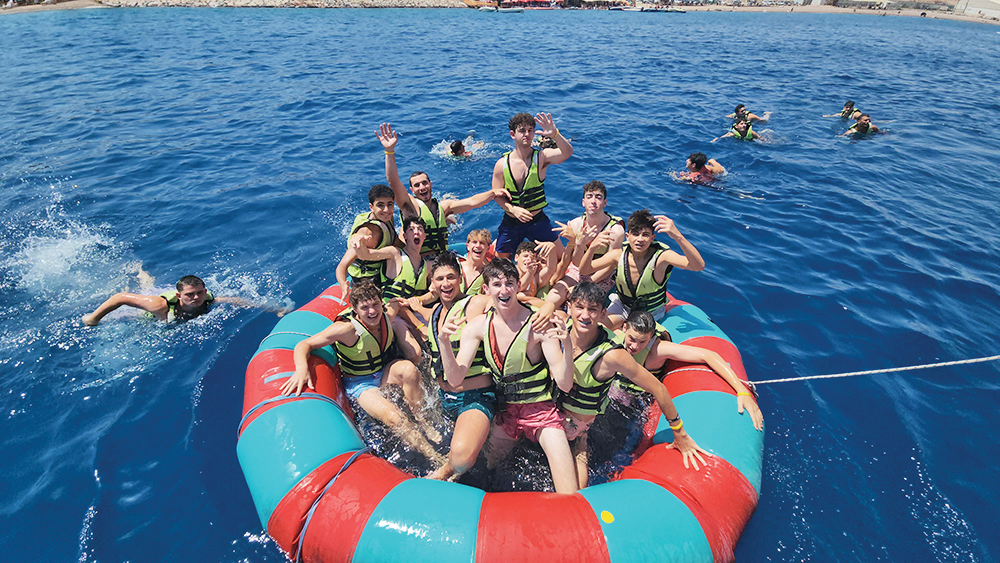
A local yeshiva heard that we were coming and invited us to farbreng with them. They served us snacks, drinks and the best cholent Tzfat had to offer. Special thanks to Reb Eliyahu Pereira for the invite and for sharing some chasidic Torah with the boys. Later that night, we were led in a Breslov meditation session overlooking the beautiful mountains. Thus began the most meaningful tour of the local kivrei tzadikim.
That night, a camper shared that this was his best day of the entire summer. Another camper told me how he’s been to Tzfat many times but this felt much more authentic.
During the Nine Days, we set aside a day dedicated to Oct. 7. At the site of the Nova Festival massacre at Karnei Reim, there is a memorial. It’s a wide, open field now decorated with memories of the 364 souls who were killed and the more than 40 hostages who were taken from there. Our campers reacted immediately and walked up and down the rows of memorials in shocked silence. We also visited the pile of burnt cars near Netivot. It’s both shocking and disturbing. It was powerful to see how each and every boy processed the Oct. 7 tragedy differently and how they discussed and shared thoughts on this experience.
We knew it was important to dedicate time this summer to express our gratitude to the IDF soldiers who are risking their lives so we can tour Israel safely. Many groups hold a barbecue, but our campers wanted to do more. That’s when we were introduced to Shuva Achim. Two brothers created a rest stop right outside Moshav Shuva for soldiers fighting in Gaza, where they can relax and be spoiled for a few minutes between missions. The moshav is located near the border and soldiers come in and out of the rest stop 24 hours a day. Together with our Sdei Chemed alumni, we raised over $5,000, which was not only used to provide a five-star barbecue for the soldiers but also to purchase materials to build a swing and some benches for the growing outpost.
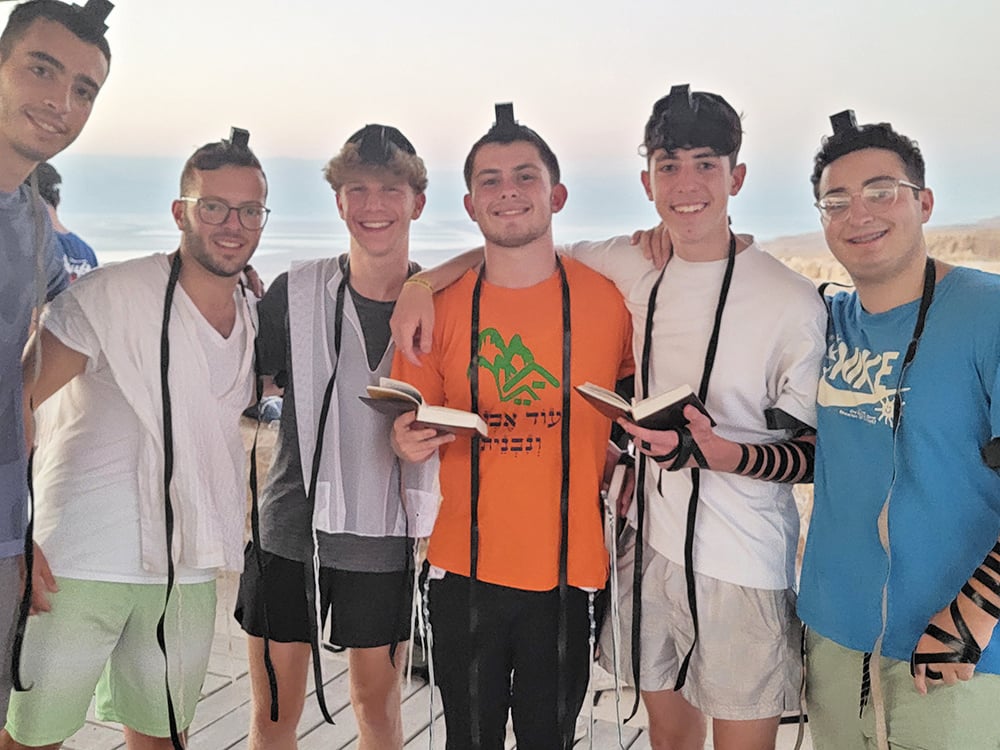
On Erev Tisha B’Av, we had the privilege of hearing from Jennifer Airley, who lost her son, Binyamin, while he was fighting as a hero in Gaza.
I also took a group of boys to Tel Hashomer Rehabilitation Center in Tel Aviv to visit injured IDF soldiers. Our mission was simple: to visit the sick, to let them know we care and to remind them that the sacrifices they made had a purpose — that we are able to be in Israel because of them.
Each summer, we choose a different Israeli community to visit for Shabbos. This summer we had an incredible Shabbos in Kfar Etzion. The views of the Judaean Mountains were incredible and the boys received a short history of the Gush. On Shabbos afternoon, we walked to Alon Shvut, davened Mincha at Yeshivat Har Etzion and heard some inspirational words from Rabbi Moshe Taragin.
This summer we added many new activities to our regular itinerary. There is a new, incredible water park called Waterland Eilat which we rented out just for ourselves. This was added to the usual jammed packed three-day Eilat trip which includes banana boating, tubing, scuba diving, snorkeling, the ropes course, bungee jumping at Top 94, Captain Philip’s party boat ride, fish spa, parasailing and ice skating.
Some other highlights were rappelling down the Jilabon, Flybox (indoor skydiving), late night go-karting, and more. Hikes like Nachal Prat, Nachel Elal and Har Sedom are truly “off the beaten path.” This is in addition to our robust daily learning program and innovative night activities.
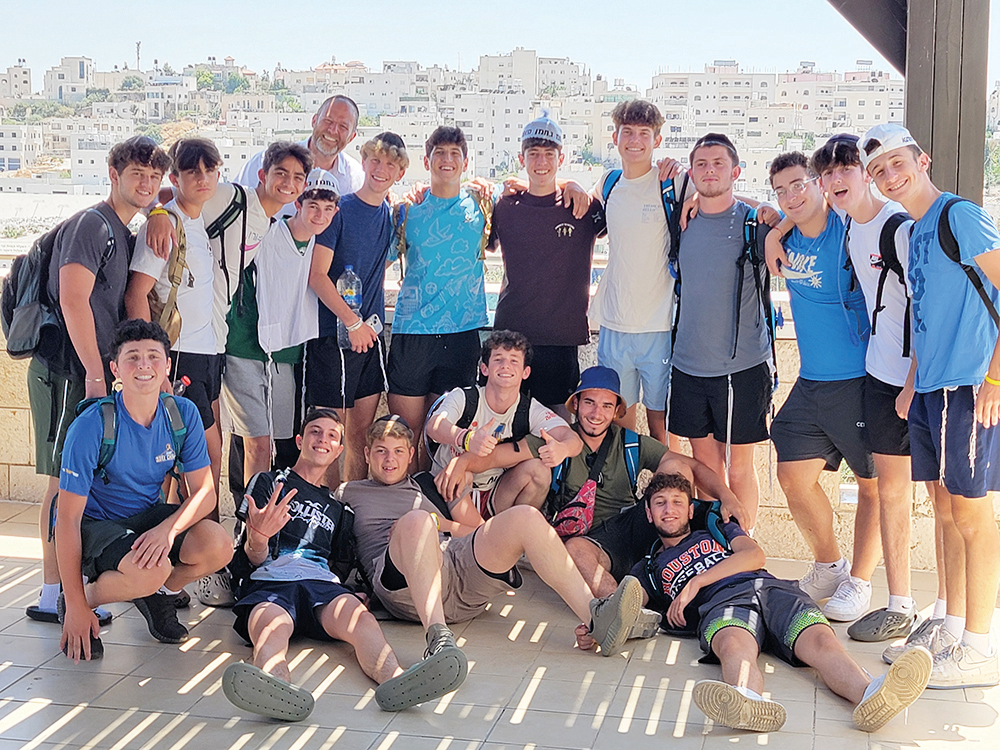
I will leave off with two beautiful letters I received from strangers when we visited Shuva:
“I was volunteering when your group was at Shuva. I got to witness the amazing work they do and your campers made it even more so. So glad you gave them this opportunity. Every trip to Israel is amazing, but this summer is downright historical and I know it will impact the kids forever. And I got so much comfort from watching them. Thank you. — B Brecher
“Every parent of these beautiful boys should be so proud! They were kind, menschlich, giving and inspiring. You and your boys were so helpful in spreading light and kindness to the chayalim and to us during this most difficult period. To top it off, those benches blew me away! שבת שלום! —R Hartman
L’shana Haba’a B’Yerushalayim — next year in Jerusalem.
Dovid Teitelbaum is the executive director of Camp Sdei Chemed.









